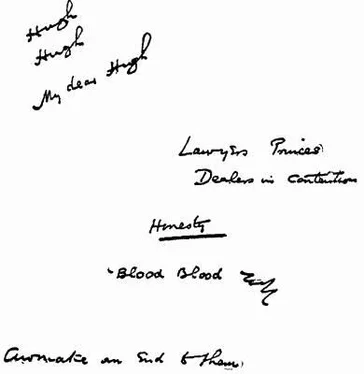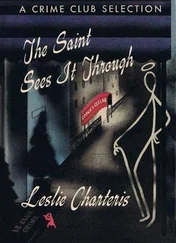Herbert Wells - Mr. Britling Sees It Through
Здесь есть возможность читать онлайн «Herbert Wells - Mr. Britling Sees It Through» весь текст электронной книги совершенно бесплатно (целиком полную версию без сокращений). В некоторых случаях можно слушать аудио, скачать через торрент в формате fb2 и присутствует краткое содержание. Жанр: Классическая проза, на английском языке. Описание произведения, (предисловие) а так же отзывы посетителей доступны на портале библиотеки ЛибКат.
- Название:Mr. Britling Sees It Through
- Автор:
- Жанр:
- Год:неизвестен
- ISBN:нет данных
- Рейтинг книги:4 / 5. Голосов: 1
-
Избранное:Добавить в избранное
- Отзывы:
-
Ваша оценка:
- 80
- 1
- 2
- 3
- 4
- 5
Mr. Britling Sees It Through: краткое содержание, описание и аннотация
Предлагаем к чтению аннотацию, описание, краткое содержание или предисловие (зависит от того, что написал сам автор книги «Mr. Britling Sees It Through»). Если вы не нашли необходимую информацию о книге — напишите в комментариях, мы постараемся отыскать её.
Mr. Britling Sees It Through — читать онлайн бесплатно полную книгу (весь текст) целиком
Ниже представлен текст книги, разбитый по страницам. Система сохранения места последней прочитанной страницы, позволяет с удобством читать онлайн бесплатно книгу «Mr. Britling Sees It Through», без необходимости каждый раз заново искать на чём Вы остановились. Поставьте закладку, и сможете в любой момент перейти на страницу, на которой закончили чтение.
Интервал:
Закладка:
Each of these gentlemen brought with him the implication or the intimation of a critical attitude towards England. It was all very well for Mr. Britling himself to be critical of England; that is an Englishman's privilege. To hear Mr. Van der Pant questioning British efficiency or to suspect Mr. Direck of high, thin American superiorities to war, was almost worse than to hear Mrs. Harrowdean saying hostile things about Edith. It roused an even acuter protective emotion.
In the case of Mr. Van der Pant matters were complicated by the difficulty of the language, which made anything but the crudest statements subject to incalculable misconception.
Mr. Van der Pant had not the extreme tactfulness of his so typically Catholic wife; he made it only too plain that he thought the British postal and telegraph service slow and slack, and the management of the Great Eastern branch lines wasteful and inefficient. He said the workmen in the fields and the workmen he saw upon some cottages near the junction worked slowlier and with less interest than he had ever seen any workman display in all his life before. He marvelled that Mr. Britling lit his house with acetylene and not electric light. He thought fresh eggs were insanely dear, and his opinion of Matching's Easy pig-keeping was uncomplimentary. The roads, he said, were not a means of getting from place to place, they were a dédale ; he drew derisive maps with his finger on the table-cloth of the lane system about the Dower House. He was astonished that there was no Café in Matching's Easy; he declared that the "public house" to which he went with considerable expectation was no public house at all; it was just a sly place for drinking beer.... All these were things Mr. Britling might have remarked himself; from a Belgian refugee he found them intolerable.
He set himself to explain to Mr. Van der Pant firstly that these things did not matter in the slightest degree, the national attention, the national interest ran in other directions; and secondly that they were, as a matter of fact and on the whole, merits slightly disguised. He produced a pleasant theory that England is really not the Englishman's field, it is his breeding place, his resting place, a place not for efficiency but good humour. If Mr. Van der Pant were to make inquiries he would find there was scarcely a home in Matching's Easy that had not sent some energetic representative out of England to become one of the English of the world. England was the last place in which English energy was spent. These hedges, these dilatory roads were full of associations. There was a road that turned aside near Market Saffron to avoid Turk's wood; it had been called Turk's wood first in the fourteenth century after a man of that name. He quoted Chesterton's happy verses to justify these winding lanes.
"The road turned first towards the left,
Where Perkin's quarry made the cleft;
The path turned next towards the right,
Because the mastiff used to bite...."
And again:
"And I should say they wound about
To find the town of Roundabout,
The merry town of Roundabout
That makes the world go round."
If our easy-going ways hampered a hard efficiency, they did at least develop humour and humanity. Our diplomacy at any rate had not failed us....
He did not believe a word of this stuff. His deep irrational love for England made him say these things.... For years he had been getting himself into hot water because he had been writing and hinting just such criticisms as Mr. Van der Pant expressed so bluntly.... But he wasn't going to accept foreign help in dissecting his mother....
And another curious effect that Mr. Van der Pant had upon Mr. Britling was to produce an obstinate confidence about the war and the nearness of the German collapse. He would promise Mr. Van der Pant that he should be back in Antwerp before May; that the Germans would be over the Rhine by July. He knew perfectly well that his ignorance of all the military conditions was unqualified, but still he could not restrain himself from this kind of thing so soon as he began to speak Entente Cordiale—Anglo-French, that is to say. Something in his relationship to Mr. Van der Pant obliged him to be acutely and absurdly the protecting British.... At times he felt like a conscious bankrupt talking off the hour of disclosure. But indeed all that Mr. Britling was trying to say against the difficulties of a strange language and an alien temperament, was that the honour of England would never be cleared until Belgium was restored and avenged....
While Mr. Britling was patrolling unimportant roads and entertaining Mr. Van der Pant with discourses upon the nearness of victory and the subtle estimableness of all that was indolent, wasteful and evasive in English life, the war was passing from its first swift phases into a slower, grimmer struggle. The German retreat ended at the Aisne, and the long outflanking manoeuvres of both hosts towards the Channel began. The English attempts to assist Belgium in October came too late for the preservation of Antwerp, and after a long and complicated struggle in Flanders the British failed to outflank the German right, lost Ghent, Menin and the Belgian coast, but held Ypres and beat back every attempt of the enemy to reach Dunkirk and Calais. Meanwhile the smaller German colonies and islands were falling to the navy, the Australian battleship Sydney smashed the Emden at Cocos Island, and the British naval disaster of Coronel was wiped out by the battle of the Falklands. The Russians were victorious upon their left and took Lemberg, and after some vicissitudes of fortune advanced to Przemysl, occupying the larger part of Galicia; but the disaster of Tannenberg had broken their progress in East Prussia, and the Germans were pressing towards Warsaw. Turkey had joined the war, and suffered enormous losses in the Caucasus. The Dardanelles had been shelled for the first time, and the British were at Basra on the Euphrates.
§ 11
The Christmas of 1914 found England, whose landscape had hitherto been almost as peaceful and soldierless as Massachusetts, already far gone along the path of transformation into a country full of soldiers and munition makers and military supplies. The soldiers came first, on the well-known and greatly admired British principle of "first catch your hare" and then build your kitchen. Always before, Christmas had been a time of much gaiety and dressing up and prancing and two-stepping at the Dower House, but this year everything was too uncertain to allow of any gathering of guests. Hugh got leave for the day after Christmas, but Teddy was tied; and Cissie and Letty went off with the small boy to take lodgings near him. The Van der Pants had hoped to see an English Christmas at Matching's Easy, but within three weeks of Christmas Day Mr. Van der Pant found a job that he could do in Nottingham, and carried off his family. The two small boys cheered their hearts with paper decorations, but the Christmas Tree was condemned as too German, and it was discovered that Santa Claus had suddenly become Old Father Christmas again. The small boys discovered that the price of lead soldiers had risen, and were unable to buy electric torches, on which they had set their hearts. There was to have been a Christmas party at Claverings, but at the last moment Lady Homartyn had to hurry off to an orphan nephew who had been seriously wounded near Ypres, and the light of Claverings was darkened.
Soon after Christmas there were rumours of an impending descent of the Headquarters staff of the South-Eastern army upon Claverings. Then Mr. Britling found Lady Homartyn back from France, and very indignant because after all the Headquarters were to go to Lady Wensleydale at Ladyholt. It was, she felt, a reflection upon Claverings. Lady Homartyn became still more indignant when presently the new armies, which were gathering now all over England like floods in a low-lying meadow, came pouring into the parishes about Claverings to the extent of a battalion and a Territorial battery. Mr. Britling heard of their advent only a day or two before they arrived; there came a bright young officer with an orderly, billeting; he was much exercised to get, as he expressed it several times, a quart into a pint bottle. He was greatly pleased with the barn. He asked the size of it and did calculations. He could "stick twenty-five men into it—easy." It would go far to solve his problems. He could manage without coming into the house at all. It was a ripping place. "No end."
Читать дальшеИнтервал:
Закладка:
Похожие книги на «Mr. Britling Sees It Through»
Представляем Вашему вниманию похожие книги на «Mr. Britling Sees It Through» списком для выбора. Мы отобрали схожую по названию и смыслу литературу в надежде предоставить читателям больше вариантов отыскать новые, интересные, ещё непрочитанные произведения.
Обсуждение, отзывы о книге «Mr. Britling Sees It Through» и просто собственные мнения читателей. Оставьте ваши комментарии, напишите, что Вы думаете о произведении, его смысле или главных героях. Укажите что конкретно понравилось, а что нет, и почему Вы так считаете.






